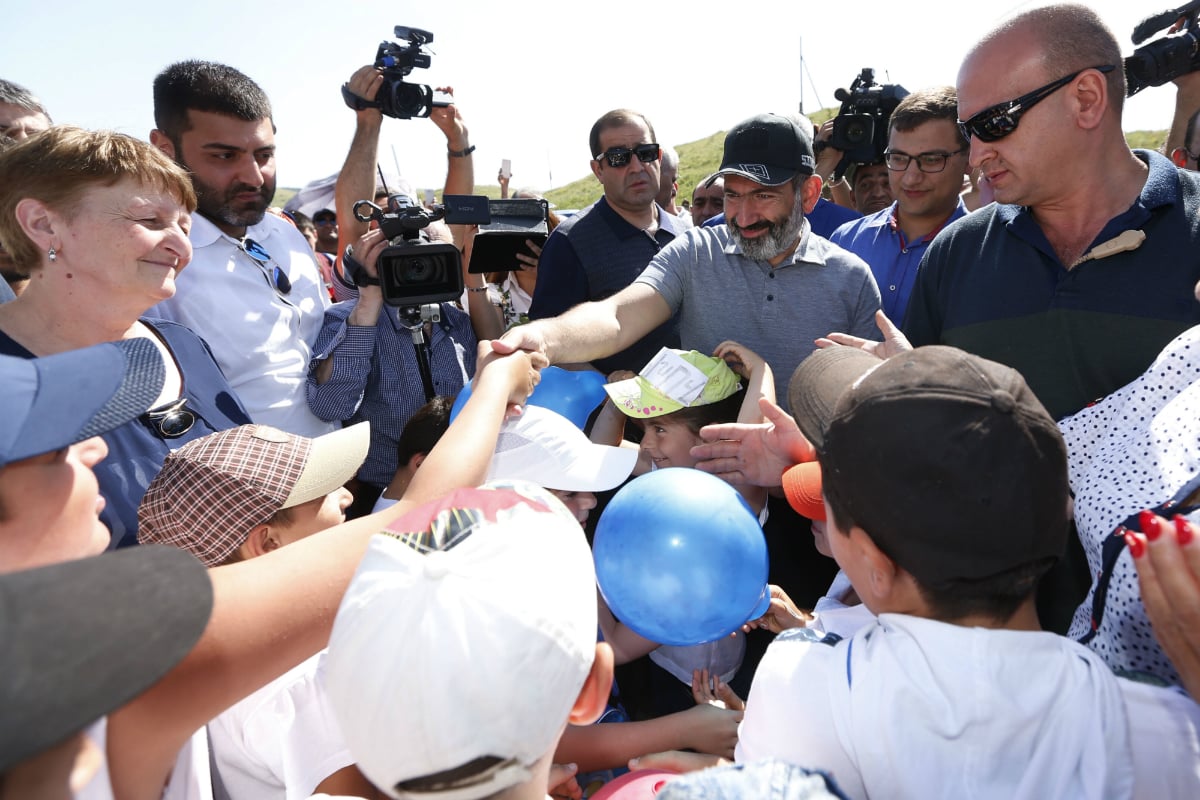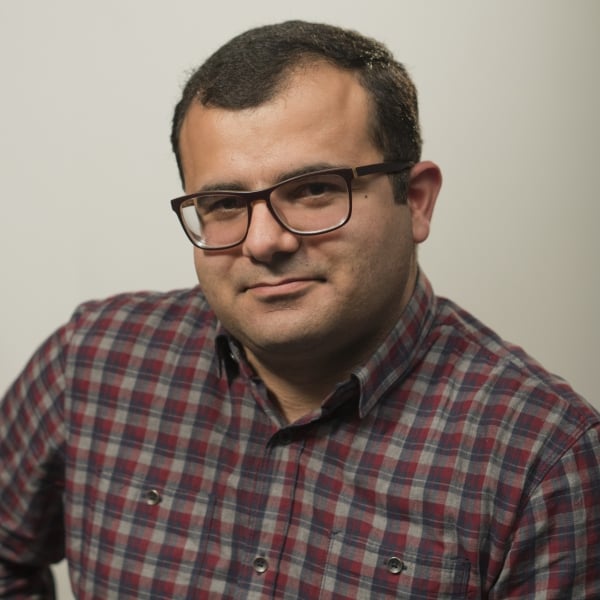
The visit of the government delegation lead by Prime Minister Nikol Pashinyan to Armenia’s southern provinces last week triggered an old-fashioned journalistic dilemma.
Should journalists and media outlets go on business trips at the expense of government agencies? Is it worth declining invitations to accompany officials on regional or overseas visits, for the sake of live broadcasts, official messages, and re-publications? Simply put, is there a conflict of interest? Can the journalist conceal the fact that they have “gone on a journey” with an official when they are covering the activities of a government official?
This is a really important issue, especially if you take into consideration, that the majority of our journalists earn a humble salary, often do not have as many opportunities to travel abroad, even to neighboring countries or remote regions of Armenia as there are governmental visits, and in giving that opportunity, the government can incite feelings of gratefulness in the journalist, thereby “neutralizing” them.
On the other hand, the government “is equal to everyone,” and its coverage is important for everyone. If the news outlet does not have the funds to organize its business trips, why should it refuse participating in in visits using state funds, which were formed by the taxes it paid? In this case, however, the government cannot ensure the participation of all media, especially foreign visits. So, what should we do?
In the past, during the reign of the Republican Party, the government and the president’s staff had a quite well refined list of “responsible” and “irresponsible” media outlets, and it was clearly defined as to which of those (excluding Public Television, Public Radio and Armpress State Agency) would accompany high-ranking officials during their visit. The behavior of these media outlet journalists was strictly regulated: If the journalist wanted to continue to go on “trips” moreover, not to lose their jobs, they should regulate their behavior according to the framework of rules as defined by Baghramyan 26 (aka the government), give questions that are generally guided, or otherwise agreed upon in advance, and cover the events in an appropriately restrained manner.
Aside from the internal field control effect, this style of working also solves it’s external problems, officials in any case, take on a more influential appearance when a group of journalists follows them into the residence of a foreign official or down the halls of international organizations.
In addition to direct censorship, this situation also enhanced self-censorship among journalists, sometimes with funny manifestations. For example, back in November in 2011, when the political field was preparing for the 2012 parliamentary elections, during a regional visit, Serzh Sargsyan gave a “spontaneous” interview to journalists who came with him and, in a by the way matter, touched upon Raffi Hovannisian’s call for holding free elections the day before. Sargsyan replied to that call by addressing the opponent with sharp qualifications.
“…[we are going to hold the elections] calmly, relaxed, without noise, without paying attention to the, I don’t want to say evaluation, because they have no right to give their evaluation, rather opinion of evil people. Without taking into consideration their poison, without taking into consideration their bad intentions…”
This quote was posted on one of the opposition websites, however “more responsible” media excluded it. I, who at that time was working at A1+ (we were not invited to presidential visits), tried to verify the authenticity of the quote from an employee at one of those responsible websites, at that point one of my very experienced colleagues who was present at that conversation. He confirmed that Sargsyan had said exactly that. “Why did you take that part out of your material?” I asked surprised. “Well it wa a bit too sharp and provocative, I said it’s probably better not to,” said my colleague, who has always accompanied high-ranking officials and decided to insure himself from any possible misfortune and not to print the eccentric expressions that came out of Serzh Sargsyan’s mouth.
Now, when it is commonly said, the situation has changed, it seems that the problem should be resolved. However, as I mentioned in the beginning on July 5, Prime Minister Nikol Pashinyan’s visit to Syunik and Vayots Dzor became the reason for debate again.
Some of the journalists complained that the government did not allocate them a place in the government delegation, saying they had no money, while they left with the government helicopter. Others have expressed the opinion that at last it’s time to give up this “vicious” practice of being tied to the government.
Editor of iLur.am, Kristine Khanumian, for example published a complete list, offering to stop the tradition of taking journalists places, and providing live broadcasts from the events center instead.
There was also a discussion in closed journalistic groups. While some claimed that the governmental “trips” were old, inherited from the Soviet Union, others thought the opposite, that the government should be forced to support the media, including financially, in order to develop free speech.
Elsewhere
Nonetheless, the practice of accompanying the leader of the country during foreign visits is not unique to neither a Soviet, nor a RPA ruled Armenia. Leaders of states are also accompanied by reporters from developed democracies. They thus have the opportunity to speak directly with key actors, including off-the-record conversations, periodically send information “home,” and try to collect some exceptional information etc.
But the procedure of participation of journalists in different countries is determined differently. Those who have watched the series House of Cards know that a special place has been reserved for journalists on “Air Force One.” However, in the citadel of world democracy, as with us, they do not cease to argue about who should occupy the seat at “the president’s side.” According to rules developed in the middle of the past century, this issue is dealt with by The White House Correspondents’ Association, which selects 10-20 journalists, television, print and online press, who must accompany the country’s first face, during each visit. These journalists have a great responsibility. They should not only report to their editorial office, but also a few dozen other editorials regularly about what happens around them. Thus, the state supports all major media outlets and use them to spread public awareness.
German Chancellor Angela Merkel is regularly accompanied by about two dozen journalists during her foreign trips. On their plane, their “floor” is naturally equipped with the necessary technical equipment to start working while in the air. Unlike the US and Armenia, travel, food and accommodation for journalists accompanying state officials are covered exclusively by their editors.
Journalists often complain that the agenda is very busy during visits. They not only have do not have the time to shop in the outlying cities, but also have no opportunity to write any exclusive stories. They are constantly running from one hall to the other, in order to reach a press conference of one official or another. But even under these conditions it’s possible to have something extraordinary, to fix remarkable details that would be out of sight of official cameras.
For example, Russian correspondent for Коммерсантъ, Andrey Kolesnikov, who usually covers President Vladimir Putin’s visits, is compelled to spice up his reportages in the main halls and backstops with interesting details, conveying the mood, emphasizing the apparent or hidden meaning of this or that phrase.
Here
The new Armenian government also tries to regulate working with the media during regional and overseas visits. According to the previous regulations, all accredited media can participate in regional visits, and once again, all will be invited to foreign visits, replacing each other on a rotation basis. The number of journalists traveling with officials will be determined according to the expediency, depending on the importance of the visit, as well as the opportunities provided by the host. The expenses of journalists’ participation in Armenia are covered by the government.
The press being liberated in a liberated Armenia, in any case, has the opportunity to reject the seats offered by the government for the sake of even more freedom. After all, you can also be satisfied with the work of your own regional (foreign) correspondents or try to find your own means for your own business trips.
Hakob Karapetyan
The views expressed in the column are those of the author's and do not necessarily reflect the views of Media.am.


Add new comment
Comments by Media.am readers become public after moderation. We urge our readers not to leave anonymous comments. It’s always nice to know with whom one is speaking.
We do not publish comments that contain profanities, non-normative lexicon, personal attacks or threats. We do not publish comments that spread hate.